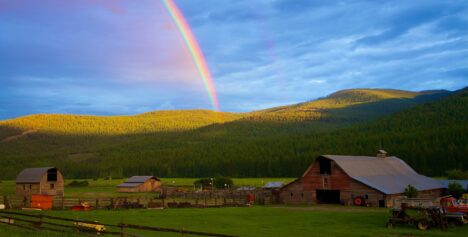2022: A New Dawn?
December 1, 2021

When the ball dropped in New York’s Times Square on December 31, 2020, the world breathed a collective sigh of relief. The chapter had closed on what TIME magazine declared on its December 14 cover to be “The worst year ever”. 2021 was supposed to be a bright light at the end of the tunnel—potential treatments like the Astrazeneca vaccine promised to fight the Covid virus, the US government switched leaders and places like Australia’s fire-ridden landscape and Beirut’s blown-up zone could look forward to rebuilding.
As we arrive at the dusk of 2021, we again ask ourselves, “What did this year mean?” Was 2021 a relief period after the tumultuous events of 2020, or was it rather “2020: The Sequel”?
One might cite various events to support the latter: the Delta strain meant the Covid pandemic continued to infect at an increased rate with various regions of both Australia and New Zealand experiencing lockdowns and the economic damages that accompany them. Then there was the United States Capitol attack in January protesting the results of the country’s presidential election, the Israel-Palestinian crisis in May, the Taliban takeover of Afghanistan in August and a 7.2 magnitude earthquake in Haiti. The dangers of the digital age were also made clear, with bad news breaking in Facebook’s—sorry, Meta’s—recent whistleblower scandal. While we are preoccupied with remembering all the deaths in these political and natural disasters, the wedging of the MV Ever Given container ship in the Suez canal—which according to the BBC stopped 12 per cent of global trade—seems like a distant memory. Taking all of this in at once it’s easy to picture 2021’s final report getting a similar grade to 2020
On an optimistic front: increased vaccination efforts, billionaires Jeff Bezos and Richard Branson earmarking a new era of tourism with their ventures into space and Brisbane securing hosting rights for the 2032 Olympics all inspired hope—even for those experiencing lockdown.

Indeed, the Euro 2020 and Copa America 2021 tournaments ran (albeit with limited fan capacities) and Australia and New Zealand’s efforts at the Tokyo 2020 Olympic and Paralympic Games inspired many with a number of feel-good stories. The former equalled their best-ever gold medal haul, while New Zealand cheered on valiant gold-winning efforts in rowing, canoeing and women’s Rugby Sevens.
Factoring these global events into our personal perception of 2021 is one thing, however, we often see the success or failure of a year through the lens of our own triumphs and tragedies. For myself, the year began with the ecstasy of becoming engaged to my girlfriend (she actually said yes!) but then came the brutal realisation that our wedding would need to be postponed due to New South Wales’ Covid-19 Delta strain outbreak. I’m sure you will have your own story to tell about this year—and if you’d like to share it with me, send me a line here.
What then does 2022 represent for us? Is it the promise of being able to travel internationally again, upcoming sporting or entertainment events, or societal progress in areas of health, environment or economy? Maybe it’s something personal that we’re looking forward to—or dreading.
The very reason that we seek answers to these questions is worth discussing. Why is it that we put a large amount of significance on another lap around the sun—investing all our dreams, hopes and desires into what will arrive around the corner following December 31, 2021?

New Dawn
Psychology Today author David Ropeik attributes the significance we place on New Year’s Eve to the opportunity to “reflect, look back, take stock, assess how we did, and resolve to do things better”. He adds: “the symbolism we attach to this moment is rooted in one of the most powerful motivations of all: our motivation to survive”. An interesting notion: for all the parties and fireworks, pumping music and friends, the one thing humans really seek is an opportunity to quietly reflect on another year of life.
Is it because we don’t have enough opportunities to do so in our highly-strung lives? A study by APA at the start of 2021 reported that stress levels this year were just as high as when the pandemic broke out in early 2020, while research by Headspace and the National Union of Students found 83.2 per cent of Australian tertiary students felt the negative effects of stress on their health and wellbeing.
This may even be partially attributed to the stress of a new year not holding any solutions: another lap around the sun will do little for political unrest, conflict and personal issues. A marking on the timeline of earth’s history doesn’t have the power to bring change like the choices we make in the days before and after the first day on the new calendar.
Reflection
There is power in stopping and reflecting. Forbes lists a variety of practical techniques for emotional rest, including practising gratitude, deep breathing and healthy habits. Another source of wisdom about rest is found in ancient but highly relevant Bible texts. The old testament psalmist David describes walking with God: “[He] is my shepherd, I lack nothing. He makes me lie down in green pastures, He leads me beside quiet waters, He refreshes my soul” (Psalm 23:1–3). Perhaps we’ve often left God out of the equation in our lives and neglected these aspects that He promises us: healing and restoration.
Time and again, this was promised to God’s people if they chose to follow Him. He promised them, to the Israelites, a people that had suffered state failure, invasion and exile—certainly stressful situations. “I will bring my people Israel back from exile,” God said. “They will rebuild the ruined cities and live in them. They will plant vineyards and drink their wine; they will make gardens and eat their fruit” (Amos 9:14). It’s a similar thing that He promises us too in our complex modern world: “Those who hope in the Lord will renew their strength. They will soar on wings like eagles; they will run and not grow weary, they will walk and not be faint” (Isaiah 40:31).
But that’s only one part of the equation that God offers. Rather than just recharging us to go out and fight another day, He offers hope for an end to all our struggles.

A Better Day
Jesus Christ’s second coming is described in the Bible as an end point to all struggles—an end to our human cycles between the hope of change and despair of struggle. It was on the Greek island of Patmos that Jesus’ disciple John was given visions of prophecy about the earth being restored as a new earth (as described in Revelation Chapter 22). Describing a “Holy City” coming down from heaven, he also says: “I heard a loud voice from the throne saying, ‘Look! God’s dwelling place is among the people, and He will dwell with them. They will be his people, and God himself will be with them and be their God’.”
He continues: “He will wipe every tear from their eyes. There will be no more death or mourning or crying or pain, for the old order of things has passed away” (Revelation 21:4).
The final chapter in the Bible describes idyllic scenes in the city (known as New Jerusalem), including “water of life, as clear as crystal, flowing from the throne of God” and the tree of life which provides “healing of the nations” (Revelation 22:1,2). Three times in that chapter, God repeats the phrase, “Look, I am coming soon!” (Revelation 22:12).
Whether we view 2022 with a sense of caution or optimism, the time we have to reflect now before a new year begins could be our moment of change. Rather than just choosing a list of New Year’s resolutions, we have the power to choose something of eternal significance: God Himself. Praying, reflecting and meditating on His words in the Bible has the power to restore us and bring us into a union with Him. The sparkling waters and luscious trees are only part of the reward for our union with God; as “the Lord God will give them light. And they will reign for ever and ever” (Revelation 22:5).
As we hit the footnote for 2021, it’s worth looking at the footnote for the Bible. “The grace of the Lord Jesus be with God’s people. Amen” (Revelation 22:21). If you’d like to find out more or you have questions about reading the Bible, praying or accepting God—send us a line at the following link.
Daniel Kuberek is assistant editor for Signs of the Times magazine. He lives in Sydney, NSW.









